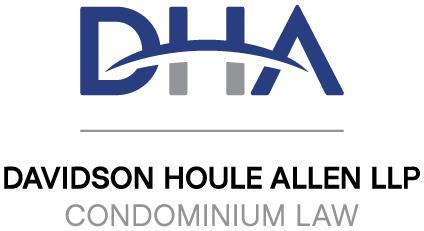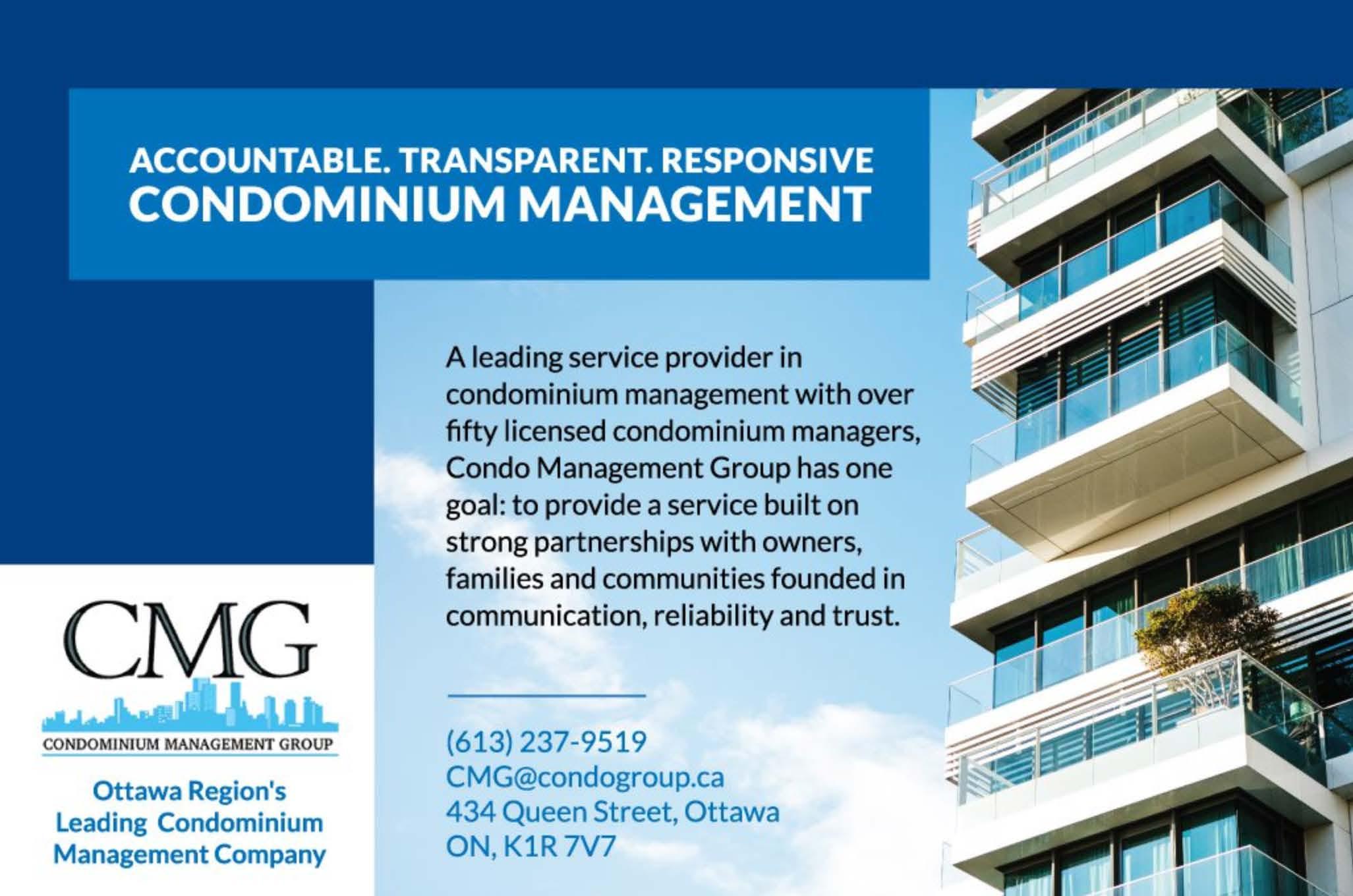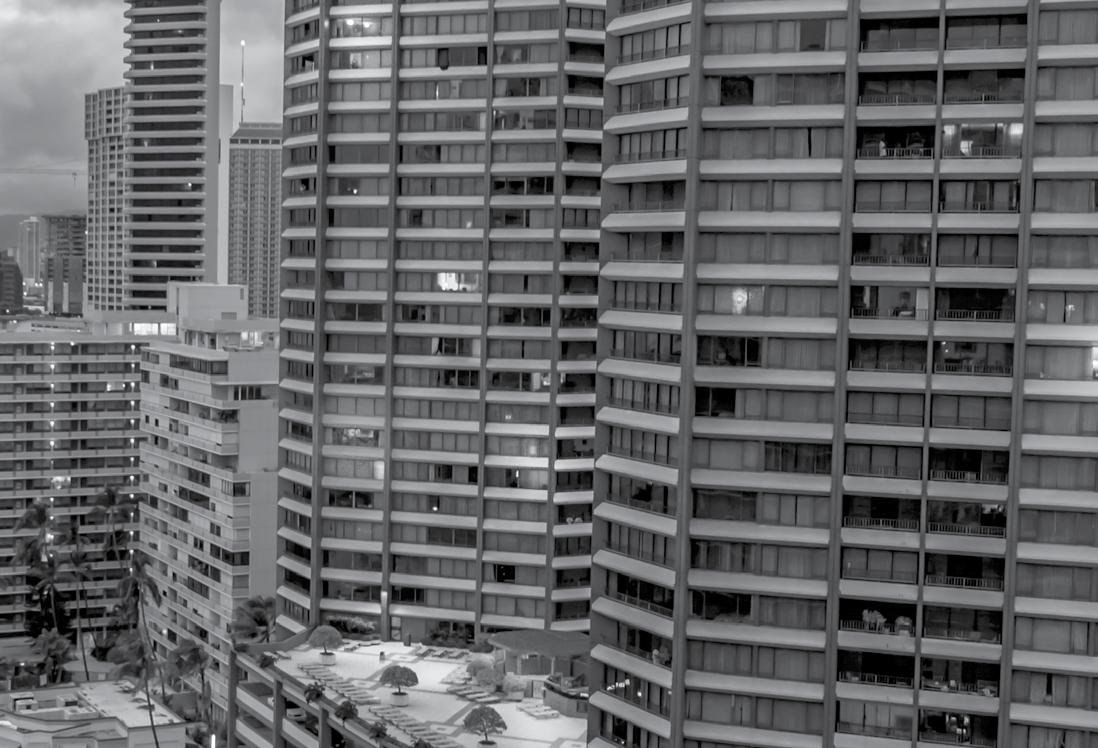CREATING A VIBRANT, WELL-INFORMED EASTERN ONTARIO CONDOMINIUM COMMUNITY ALL ABOUT THE CAT... NOT THAT TYPE OF CAT... THE CONDOMINIUM AUTHORITY TRIBUNAL

JURISDICTION OF THE CAT
A LOOK BACK AT CAT COST
AWARDS IN 2022
NAVIGATING THE CAT

CREATING A VIBRANT, WELL-INFORMED EASTERN ONTARIO CONDOMINIUM COMMUNITY ALL ABOUT THE CAT... NOT THAT TYPE OF CAT... THE CONDOMINIUM AUTHORITY TRIBUNAL

JURISDICTION OF THE CAT
A LOOK BACK AT CAT COST
AWARDS IN 2022
NAVIGATING THE CAT




• Tarion Warranty Claims
• Litigation
• Mediation and Arbitration






• Corporate Governance
• Interpreting Declarations, By-laws, and Rules
• Co-tenancy and Joint Ownership Properties
• Enforcement Issues
• Liens / Power of Sale
• Human Rights Complaints
• Employment / Labour issues
• Financing and Loans
Providing


the best possible service while protecting your investment.
CANADIAN CONDOMINIUM INSTITUTE
CCI Eastern Ontario (CCIEO)
Ontario Chapter
1 Eglinton Ave. E., Suite 705 Toronto ON M4P 3A1
Telephone: 416-915-3020 x 155
E-mail: info@cci-easternontario.ca
Website: CCI-EasternOntario.ca
Linkedin: CCI Eastern Ontario

Twitter: @cciEastOntario
Like Us on Facebook!
Search: Canadian Condominium Institute – Eastern Ontario
Newsletter Administration:
Email: info@cci-easternontario.ca
This publication attempts to provide the CCI Eastern Ontario (CCIEO) membership with information on condominium issues. Authors are responsible for their expressed opinions and for the authenticity of all presented facts in articles. The CCI Eastern Ontario Chapter does not necessarily endorse or approve statements of fact or opinions made in this publication and assumes no responsibility for these statements.
This publication also notifies members of the Eastern Ontario Chapter of events and services. The products and services advertised are not necessarily endorsed by the Eastern Ontario Chapter. Readers should conduct their own review of the products and services and seek legal and other professional advice on the particular issues which concern them.
Permission to reprint is hereby granted provided:
1) Notice is given by phone 613-688-0655 and/or in writing to the CCI Eastern Ontario Chapter; and

2) Proper credit is given as follows: Reprinted from CondoContact.
Copyright by CCI Eastern Ontario Chapter of the Canadian Condominium Institute.ISSN 1488-7320
JURISDICTION OF THE CONDOMINIUM AUTHORITY TRIBUNAL
A LOOK BACK AT CAT COST AWARDS IN 2022

REVERSE –NAVIGATING THE CAT – EXPERIENCES, THOUGHTS AND CONCERNS

As I look out my window over the fresh snow, I am thinking about all of the new and exciting plans your Board has planned for 2023. I am hopeful that our content this year will build on our past work, and foster the Canadian Condominium Institute’s mission to provide our members with a strong support system through education and advocacy.
As we move into 2023, our entire industry is also pausing to reflect on the past year and, in particular, the tragedy which occurred in a condominium community in Vaughan, Ontario. I know that all of our thoughts are with those affected by this tragic event, and that our hearts were broken at the loss of life and the challenges faced by that community.
As we struggle to process what has transpired, we reflect on the unique nature of condominium living and the role of condo di-
INDIVIDUAL
Todd Kluwak
Julie Sigouin
Blerina Rexha
Kim Bates
Florence d’Eon
rectors, owners, and the professionals who support condominium corporations.
Societal living is full of changes, challenges, and condos, as microcosms of society, are not exempt. Condominiums, however, have the unique aspect of intertwining our homes, our personal investment, our communal investment, and the business of running a condo. As such, condominium living has an emotional aspect different from pure business.
Our goal must be to work together as a community to educate, support and advocate to ensure that our condominium communities are safe and enjoyable places to live. As a Board, we commit to working hard, and to dialogue and collaborate with others, to achieve this goal.

Our education committee continues to look for opportunities to offer seminars that provide support to our entire industry and to achieve the goals set out above. We are always open to suggestions for content for upcoming seminars and events. If you have thoughts that you wish to share, please don’t hesitate to reach out.
Sincerely,
Nancy Houle, President, Canadian Condominium Institute Eastern Ontario
AcoustiTECH
BFL Canada
Entuitive Corporation
IRC Building Science Group, A Rimkus Company
Mitchell Robinson
Davidson Houle Allen LLP
Nicole Robinson
Davidson Houle Allen LLP
Martine Nolin-Simard
Gestion POM Management Inc.
Trish Watson
Glifford Carr Insurance Group
Val Khomenko
OLCM ICON Property Management Ltd.
Read Jones Christoffersen Ltd.
RPM
Trivium Property Management
CONDO CORPORATION
CCC 400 FSCC 0066
FCC 1 FSCC 0074
FCC 7 OCSCC 0988
FCC 13 OCSCC 1072
FCC 18 OCSCC 672
FCC 41 OCSCC 732
OCSCC 903
RSCC#40
PRESIDENT
NANCY HOULE, LLB, DSA, LCCI
Davidson Houle Allen LLP, Condominium Law

VICE PRESIDENT
CONSTANCE HUDAK, BA Hon’s, MBA, DSA

CO-VICE PRESIDENT
NOAH JOHNSTON, BA, RCM, OLCM, LCCI Sentinel Management Inc.
TREASURER
STEPHANIE COURNEYEA, CGA McCay Duff & Company LLP
SECRETARY
STACEY MALCOLM
Condominium Management Group

DIRECTORS
ANDRÉE BALL, LCCI
Keller Engineering
ANNE BURGOON, BSC, RCM, OLCM, LCCI
Eastern Ontario Property Management Group
MICHAEL LEWICKI, LCCI
Michael Lewicki Real Estate Broker
JONATHAN WRIGHT, LL.B, LL.M
Elia Associates PC

It’s the perfect storm: water is cascading through your building, you aren’t sure where it starts or stops. Eventually, the waterfall stops (whether on its own or due to intervention), and the cleanup begins!

During these types of trying events, emergency action is needed, and repairs will, no doubt be required afterwards.
Whose duty is it to arrange the emergency action, clean up disasters, repair units or common elements…and who pays for it? What key governing documents are going to guide your decision making?
Join our expert panel as our keynote Director puts these tough questions to the panel, and adds her own tips based on practical experience. Participants will leave with a checklist of key items to consider for such events.
- 7:00pm
CCI-EO Webinar
March 22, 2023
May 5, 2023
June 7, 2023
Nancy Houle
Annette Fleury
Sharon Cook Speakers: Director and President of her Condominium Lawyer, Davidson Houle Allen LLP Condominium Law Licensed Condominium Manager, Eastern

Education Couse - In-Person - Ottawa, ON

May 6, 2023
April 15, 2023 9:00am - 3:00pm 9:00am - 3:00pm
Education Couse - In-Person - Kingston, ON
June 29, 2023

We hope that everyone is doing well and wish everyone the best for the new year.
This edition of Condo Contact looks at the Condominium Authority Tribunal.


The introduction of the Condominium Authority Tribunal (the “CAT”) in 2017 brought some significant changes to the way condominium disputes were resolved, at least as it applied to disputes within the CAT’s jurisdiction. To learn more about what disputes end up in the CAT, take a look at Victoria Craine’s article: Condominium Authority Tribunal – Jurisdiction of the CAT.

Last year, there was a significant change to how/when costs are awarded by the CAT. Katya Ukraintz takes “A Look Back at CAT Cost Awards in 2022.”
Finally, we have a reverse Q & A! We asked some industry professionals with experience at the CAT to spill the beans… What is it really like at the CAT?
We also have some other interesting content/features to check out, including:
• CCI National Update – What is new at the National level?
• Back again this year: Your Board’s perspective on 2022 and what they are looking forward to in 2023.
• Editors’ summary – an information round-up of webinars and articles from CCI National and other chapters.
We hope that you enjoy this edition of CondoContact!
Thanks again to our amazing sponsors that help make this newsletter happen – check out their information throughout the newsletter.
Don’t forget, if you have a burning question, submit it for our next edition of Q & A.

Condominium-related disputes are bound to happen. From a practical and economic perspective, it always makes sense for the involved parties to try to resolve their dispute at an early stage. Not only does early resolution make a condominium a better place to live and/or work for all residents, but also a better investment for owners.
However, early resolution is not always possible. In such a case, your next step may be to start a legal proceeding in order to resolve your condominiumrelated dispute.
If starting a legal proceeding is required in order to resolve your condominium-relate dispute, it is important to consider the following question: What is the correct forum to start the legal proceeding? In other words, should you start your legal proceeding by way of:
1. Application to the Condominium Authority Tribunal (“CAT”);
2. Court application under section 134 of the Condominium Act; or
3. Mediation and/or arbitration under section 132 of the Condominium Act.
The answer to this question can be tricky – but it’s very important to carefully consider this question before starting your legal proceeding. Choosing the incorrect forum for your legal proceeding can not only be a waste of time and expense, but there is also risk of a cost award against you for bringing your dispute in the incorrect forum.

While condominium-related disputes were previously dealt with by way of Court Application and/or mediation and/or arbitration, since 2017, the CAT has taken on an ever-expanding role in adjudicating condominium-related disputes. Given that most condominiumrelated disputes will fall within the CAT’s expanded jurisdiction, this article reviews the CAT’s current jurisdiction.
Whether your condominium-related dispute falls within the CAT’s jurisdiction depends on the following two questions:
1. Who are the parties to the dispute? and
2. What is the subject matter of the dispute?
There are limitations as to who can start a CAT application and who a CAT application can be started against. At this time, the CAT only deals with disputes involving owners, residents, condominium corporations, mortgagees, and purchasers.
More specifically, section 1.36 of the Condominium Act confirms that a condominium corporation can start a CAT application against an owner, occupier, or a mortgagee of a unit. Likewise, an owner or mortgagee of a unit can start a CAT application against a condominium corporation, or an owner, occupier, or a mortgagee of unit. Note that an occupier (such as a tenant) is not permitted to start a CAT application. In addition, a purchaser of a unit may also start a CAT application in limited circumstances.
Accordingly, if your legal dispute involves a declarant/developer, contractor, consultant, or manager, then you are not proceeding to the CAT.
The Condominium Act and its regulations confirm that the CAT has exclusive jurisdiction over the following disputes:
• Disputes relating to the condominium’s records.
• Disputes relating to unreasonable nuisances, annoyances or disruptions set out under section 117(2) of the Condominium Act and related regulations, which specifically include:
- Noise - Odour
- Light - Vibrations
- Smoke - Vapour
• Disputes relating to provisions in a condominium’s declaration, by-laws or rules that prohibit, restrict, or otherwise govern unreasonable noise, odour, light, vibration, smoke or vapour that may cause a nuisance, disruption or annoyance to any individual.
• Disputes relating to provisions in a condominium’s declaration, by-laws or rules that prohibit, restrict, or otherwise govern:
- Pets or other animals;
- Vehicles;
- Parking and/or storage; and
- Any other type of nuisance, annoyance, or disruption to an individual in a condominium corporation
• Disputes relating to provisions in a condominium’s declaration, by-laws or rules that govern indemnification or compensation related to any of the above disputes falling within the CAT’s jurisdiction.
It is important to note that the CAT has exclusive jurisdiction over these disputes. This means that if your dispute falls within the CAT’s jurisdiction, you must bring your dispute to the CAT.
At the same time, the CAT is not able to decide disputes that do not fall within the CAT’s jurisdiction. For instance, the CAT does not have jurisdiction to decide disputes under the following categories:
• Easements under sections 20 and 21 of the Condominium Act.
• Occupiers’ liability under section 26 of the Condominium Act.
• Condominium liens and priority issues under sections 85 and 86 of the Condominium Act.
• Prohibited conditions and activities under section 117(1) of the Condominium Act.
• Amalgamation or termination under parts VII and VIII of the Condominium Act.
• Determination of title to any real property.
• Requiring a person (such as a tenant) to vacate a property permanently.
• A claim for oppression under section 135 of the Condominium Act., unless the “heart” of the dispute falls within the CAT’s jurisdiction set out above.
• Modifications to common elements under sections 97 and 98 of the Condominium Act.
• Generally, any other dispute not falling within the CAT’s jurisdiction noted above.
Overall, the CAT has extensive jurisdiction over condominium related issues, and we anticipate that the CAT’s jurisdiction will continue to expand. There are many advantages to having your condominiumrelated dispute brought by way of CAT application. The CAT is fully online and is therefore very accessible. In addition, the CAT generally provides a faster outcome for a less cost compared to proceeding by way of Court or mediation/arbitration under section 132 of the Condominium Act. Therefore, in our view, bringing your condominium-related dispute by way of CAT application can be a good thing.
But again, before starting any legal proceeding in relation to your condominium-related dispute, it is important to carefully consider the tricky question of what is the correct forum to bring your legal proceeding. If you are unable to confidently answer this question, you may wish to seek advice from your legal counsel considering the potential consequences (as further noted above).
Victoria is an associate lawyer with Davidson Houle Allen LLP. She advises on all condominium law matters including but not limited to corporate governance matters, building deficiency litigation, proceedings involving difficult owners and tenants, and matters involving the enforcement of property rights. Victoria’s goal is to always resolve a client’s problem in a reasonable, efficient, and client-focused manner. n


Previously, the CAT would not order a party to pay another party’s legal fees unless there were exceptional reasons to do so. An award of costs was rare and could only be found in a handful of cases. For example, the CAT had found there to be exceptional circumstances where a party has wilfully ignored several attempts at compliance, disregarded an agreement they entered into1, or where a party engaged in vexatious conduct.2 However, in Lahrkamp, the CAT only awarded a fraction of the costs claimed, being $2,500.00 awarded out of the $21,299.94 requested.
The current costs Rule reads as follows: Reimbursement of Legal Costs and Disbursements at any stage
48.2 The CAT generally will not order one Party to reimburse another Party for legal fees or disbursements (“costs”) incurred in the course of the proceeding. However, where appropriate, the CAT may order a Party to pay to another Party all or part of their costs, including costs that were directly related to a Party’s behaviour that was unreasonable, undertaken for an improper purpose, or that caused a delay or additional expense.
This amendment provides more clarity and opportunity to those looking to recover costs against the opposing party. However, the first line stating that the CAT will generally not order one party to reimburse another party for legal fees or disbursements remains in place and cannot be ignored.
Looking back at 2022, after the changes to the Rules, it is apparent that there is much more flexibility given and opportunity for the CAT to award costs.
The decisions below make it clear that the CAT is still hesitant to award full legal costs, even when it has determined the party bears responsibility. However, with the further potential of costs being awarded, there are steps that condominium corporations can take to better position themselves when involved in (or prior to becoming involved in) a CAT dispute.
These would include:
(1) Ensuring that your condominium corporation’s Declaration contains the appropriate indemnification provisions:
In York Region Standard Condominium Corporation No. 1201 v. Us, the CAT awarded $450.00 in costs incurred prior to the CAT proceeding (“preCAT costs”) and $1,200.00 in costs incurred during the CAT proceeding (“in-CAT costs”) against Mr. Us. Despite commenting that the Declaration did not clearly address compliance costs, the CAT nevertheless recognised the underlying intent of the provisions and awarded the cost of the compliance letter. The CAT also found that the in-CAT costs claimed ($7,824.00) were disproportionate to the hearing but determined that Mr. Us bore some responsibility for the costs of securing compliance considering the indemnification provisions in the declaration and rule.3
In Durham Condominium Corporation No. 80 v. Occleston, the CAT awarded $2,500.00 in preCAT costs against the Respondent and $2,200.00 in in-CAT legal costs. DCC 80 had requested $3,709.00 in pre-CAT costs and $9,014.72 for inCAT costs. In coming to this, the CAT weighed the wording of the indemnification provision, the impact of costs on the Respondent, and the proportionality of the costs claimed.4
In Carleton Condominium Corporation No. 111 v. Lega, the CAT awarded $450.00 in pre-CAT costs against Mr. Lega and $3,350.00 in legal fees. CCC 111 had requested $550.00 in pre-CAT costs and $5,586.02 for in-CAT costs. The CAT found that the indemnification provisions were clear, and that Mr. Lega had been duly warned that he would be responsible for the costs CCC 111 incurred.5
(2) Ensuring that the condominium corporation will be able to show that attempts were made to resolve the matter before commencing an application with the CAT (i.e. warning letters or mediation):
In Toronto Standard Condominium Corporation No. 1791 v. Franklin, the CAT awarded $3,500.00 in legal costs against Mr. Franklin. TSCC 1791 had requested $17,796.38 for legal costs. The CAT found that it would not be fair to require all owners to pay for the costs of Mr. Franklin’s non-compliance. TSCC 1791 had communicated with Mr. Franklin multiple times to request his compliance. The CAT further stated that Mr. Franklin’s behaviour resulted in additional work.6
In Toronto Standard Condominium Corporation No. 2208 v. Kaissi et al., the CAT awarded legal costs against the condominium corporation in the amount of $5,000.00. The Respondents had requested $14,893.40 in costs. The CAT stated that TSCC 2208’s conduct warranted an order of costs. The CAT found that the TSCC 2208 had made no effort to resolve the issue before filing its application and had not asked several witnesses to provide their accounts.7

In York Condominium Corporation No. 229 v. Rockson, the CAT awarded $9,101.02 in legal costs against Mr. Rockson, representing 100% of the legal fees and expenses incurred. The CAT considered the condominium corporation’s multiple requests to effect Mr. Rockson’s compliance, the rules, Mr. Rockson’s lack of participation in the proceeding, and his wilful refusal to comply.8
In Carleton Condominium Corporation No. 132 v. Evans, the CAT awarded legal costs of $621.50 for a compliance letter and $1,100.00 plus the filing fee of $150.00 against Mr. Evans. CCC 132 had requested $3,390.00 in pre-CAT costs and $7,145.32 for in-CAT costs. The CAT found that CCC 132 had attempted to resolve the issue prior to the commencement of the CAT proceeding, but also considered the personal circumstances of Mr. Evans when deciding on the
amount of in-CAT costs to order. Ultimately, the CAT weighed the clear indemnification provisions, the interests of all the owners, and the impact on the Respondent to reach the amount of $1,100.00.9
In Toronto Standard Condominium Corporation No. 2138 v. Palmer et al., the CAT awarded $4,310.42 in pre-CAT costs and $4,000.00 in inCAT costs against the Respondents. TSCC 2138 had requested $4,310.42 in pre-CAT costs and $8,984.45 for in-CAT costs. The CAT found that, pursuant to the TSCC 2138’s indemnification provisions, the pre-CAT costs were necessary and reasonably incurred. The CAT further found that it would not be fair for the other unit owners to bear the in-CAT costs, considering the many attempts TSCC 2138 made to affect the Respondents’ compliance.10
(3) Ensuring that all communications are clear and concise. Avoid fear mongering and make it clear that you are looking to find a suitable resolution.
In Sava v. York Condominium Corporation No. 386, the CAT awarded $871.50 in legal costs against the condominium corporation for being “directly related to a Party’s behaviour.” The CAT found that the explanation the condominium corporation offered to properly read the records was confusing and led directly to Mr. Sava hiring legal counsel to prepare an opinion.11
In Jones v. Toronto Standard Condominium Corporation No. 2017, the CAT awarded $500.00 in legal costs plus the $200.00 filing fee against the condominium corporation. The CAT found that the condominium corporation had acted unreasonably in delaying sound testing and had not taken action until Ms. Jones’ legal representative sent a letter.12
In Gale v. Halton Condominium Corporation No. 61, the CAT awarded $2,000.00 in legal costs against Mr. Gale. HCC 61 had requested $6,713.00 in legal fees. In considering the impact of a cost award on the parties, the CAT found that Mr. Gale had undertaken the proceeding partly on an improper basis and had a history of doing so.13
In Toronto Standard Condominium Corporation No. 1978 v. Hackman, the CAT awarded $7,726.00 in legal costs against Mr. Hackman. TSCC 1978 had requested $15,453.00 in legal costs. The CAT concluded that the application had been filed in contravention of a settlement agreement resolving an earlier application and that Mr. Hackman had contravened the settlement. However, the condominium corporation was only awarded half of the legal costs claimed, with the CAT stating that it still had a duty to investigate the complaints.14
Additionally, condominium corporations should consider streamlining the process for a record request. Knowing that the CAT will award penalties against a non-compliant condominium corporation, condominium corporations should consider having an easily accessible owner platform to store and access core records. This would avoid being needlessly brought into CAT proceedings and having penalties or cost awards awarded against the condominium corporation.

Katya has been called to the bar in both Québec and Ontario and is fluent in both French and
English. Her bijural background brings a unique perspective to solving the variety of issues that arise in the practice of Post-Development Condominium Law.
1 Peel Condominium Corporation No. 96 v. Psofimis, 2021 ONCAT 48
2 Lahrkamp v Metropolitan Toronto Condominium Corporation No. 932, 2019 ONCAT 4
3 York Region Standard Condominium Corporation No. 1201 v. Us, 2022 ONCAT 133
4 Durham Condominium Corporation No. 80 v. Occleston, 2022 ONCAT 103
5 Carleton Condominium Corporation No. 111 v. Lega, 2022 ONCAT 123
6 Toronto Standard Condominium Corporation No. 1791 v. Franklin, 2022 ONCAT 96
7 Toronto Standard Condominium Corporation No. 2208 v. Kaissi et al., 2022 ONCAT 92
8 York Condominium Corporation No. 229 v. Rockson, 2022 ONCAT 46
9 Carleton Condominium Corporation No.132 v. Evans, 2022 ONCAT 97
10 Toronto Standard Condominium Corporation No. 2138 v. Palmer et al. 2022 ONCAT 104
11 Sava v. York Condominium Corporation No. 386, 2022 ONCAT 52
12 Jones v. Toronto Standard Condominium Corporation No. 2017, 2022 ONCAT 139
13 Gale v. Halton Condominium Corporation No. 61, 2022 ONCAT 85
14 Toronto Standard Condominium Corporation No. 1978 v. Hackman, 2022 ONCAT 143 n

CCI-National is made up of 17 chapters from all provinces except Quebec, with 36,000 CCI members nationally. The Chapters are directed by volunteer Board Members – with over 200 Board members across the country. We are pleased to see that CCI continues to be active and vibrant. This is an update on CCI-National and the events or Chapter undertakings over the past few months.
This amazing event, hosted by CCI–EO, was held in Kingston in late November, 2022. It was the first “in-person” gathering of all chapters from across the country since the pandemic began. Needless to say that such a “gathering of clans” was very informative and necessary. A great deal of organizational subject matter was addressed at the Forum along with a significant amount of information on how the condominium industry in Canada varies from province to province. Many chapters discussed their efforts in working with municipal and provincial governments on matters of taxation and legislative change – which was not always successful.
CCI-Vancouver
reported that a major change to the province’s Condominium Act was introduced and passed in the legislature without any consultation of condominium owners, directors, managers or industry professionals. This change resulted in condominiums or stratas in BC having no control or restrictions on the number of investment or rental properties.
CCI-Saskatchewan
reported that pet owners are bypassing restrictions by obtaining “Emotional Support Animals” certifications online confirming that their pets are support animals.

is attempting to restructure its membership database according to city council riding boundaries so that they can communicate with the local representatives on issues within their specific constituencies.

More and more we are seeing local CCI Chapters expanding their focus beyond just education towards some degree of advocacy. It is great to see the individual Chapters work together to effect change, share ideas and help the condominium industry grow.
The CCI Chapters in Ontario have historically worked together to promote legislative changes and identify problems and solutions within the condominium community. Some of these include insurance issues and changes to the legislation.
Most recently, CCI-Toronto was shocked, as we all were, by the tragic events that took place at the Bellaria Condominum in Vaughn. In response to this tragedy, CCI-Toronto is working on guidelines for security of board directors and property managers. The intention is to involve all Ontario chapters and then have a representative group meet with Government officials and Police to determine what preventative steps are possible. As we all know it is difficult enough to find volunteers to run for the Board, and a secure and constructive environment is key. We are hopeful that this initiative will be a step forward in making residents, directors and managers feel safe.
Thank you. n

In a twist on the Q & A for this newsletter, we asked industry professionals questions instead. Keeping with the Condominium Authority Tribunal (“CAT”) theme, we approached CCI members that have experienced all that CAT has to offer for their thoughts on the following:

1. What do you think of the Condominium Authority Tribunal (“CAT”) / describe your experience with the CAT. In reviewing the responses, it was clear that although there are some hiccups (more on
that below) the CAT process overall is satisfactory and leads to quicker and less expensive resolutions to disputes.* It was also found to be less complex than the Court system.
*In most cases… always need a caveat.
2. How have you found navigating the CAT process?
If you have ended up in a dispute and are nervous about what to expect, rest assured, it has been found fairly straight forward.
After some tinkering and trial and error, the website can be navigated. However, better defined menus and some “how to” information might just make the process even easier.
If you are not familiar with the CAT, there are three stages in the dispute resolution process:
• Stage 1 - Negotiation – party led;
• Stage 2 - Mediation – CAT mediator; and
• Stage 3 - Adjudication – CAT decision maker.
There were some questions when navigating the initial stages on what to do when a party
is unresponsive. More direction in these cases would be helpful.
Also, when getting to Stage 3 – the process can change depending on the adjudicator. This means that right when you think you have your feet under you – off you go in a different direction! We definitely take the point that each case will have different needs depending on the parties and the issues in dispute. Flexibility can be helpful in those cases. However, some standard guidelines on timelines for submissions, length and format of submissions, could assist parties.
3. Have you faced any issues with the CAT process?
We addressed some issues in the previous section, but don’t worry – we saved some for here!
One issue raised was fairness to Condominium Board members or managers that are navigating the process. While lawyers and owners have more time that they can focus on the proceeding, directors or managers going it alone just don’t have the same time, energy or funds available to prepare and respond to the case. Directors are volunteers with other responsibilities and, as a result, they need to rely on professional time and advice to assist them in responding to cases – this of course comes at a cost. The CAT does not always recognize this in their rulings on costs. This means that all unit owners face the burden of costs for disputes with an individual owner – even if it was an unfounded proceeding… See of course Katya Ukrainetz’s article on page 13 which discusses costs (and gives some helpful ideas on preparing your case).
When starting an application, there is a lot of information that you are required to submit in order to get to the starting line. Not all of this information is is relevant or readily accessible, for example:
• Uploading ALL of the condo’s governing documents, when you are relying only on one specific by-law. This can be time consuming for condominiums with lots of by-laws. [Which condo out there has hit By-law 15….?]
• Needing a tenant’s phone number (or email) – which the other party may not have. Sadly, not all owners comply with Section 83!
A Conundrum:
Some CAT decisions have stated that owners are not entitled to a record because the request was not related to a purpose under the Act.
Owners making a request for records are required to state that the request is: “solely related to that person’s interests as an owner, a purchaser or a mortgagee of a unit, as the case may be, having regard to the purposes of the Act.” However, condominium corporations cannot require that owners provide the purpose of the request. How can we resolve this conundrum without ending up before the CAT? It seems that record requests that relate to an improper purpose will need the Tribunal to weigh in.
4. Do you have any suggestions that would make the CAT process easier to navigate?
One of the suggestions on making the CAT process easier starts before the CAT process begins. Better guidance for condominiums, managers and owners on:
• Non-core records, when does a record that is not set out as a record under the Act, Regulations or the Corporation’s governing documents become a record?
• Could there be a list of reasonable fees without needing to cull past decisions?
• What employment records are actually restricted?
• How long do you need retain portions of in-camera minutes?
If the CAT is to be effective, managers and directors need more information on how to handle records requests so that they are not swamped.
Next, having some standard forms/formatting for commencing an application and/or written submissions could assist in streamlining the process.
As noted above, reducing the need to upload information that is not available or not
relevant would assist. Also, it has been noted that the CAO occasionally gives information to owners that is treated as legal advice. This can sometimes cause confusion.
Lastly, we turn back to costs. Without culling the previous CAT cases, it is difficult to know what costs are reasonable. Often times, the amounts awarded previously do not reflect the actual costs incurred by the condominium in reviewing and responding to the request. For example, the standard charge of 20 cents a page for copying in no way reflects the actual costs involved.
Generally speaking, condominiums get legal counsel involved with excessive requests or improper requests. These costs should be recoverable. The costs related to reviewing and processing a request for records are often too low. When an owner has multiple requests, this can hamper the Corporation’s ability to function properly. While the contributors recognize that owners are entitled to access to the Corporation’s records, excessive records requests can place a significant burden on the Corporation. Allowing for proper cost recovery in the CAT process can assist.
See “how to” guide ideas below!
5. Are there any courses or materials that you would find helpful if you end up at CAT again?
That “how to guide” from Question 2 is coming back into play. Here are some guides that might help:
• How to navigate the website.
• How to set up your case.
• How to for condos and managers on responding to records requests.
• How to respond to records requests, for condos and managers.
Also, a course on navigating the CAT process in an organized, cost-effective manner.
Big THANKS to Rory Gooderham (with 36 years on the front lines), Emily Deng and our more shy contributors (you know who you are) for your comments and insight. n
What are you most proud of that CCI Eastern Ontario’s Chapter accomplished in 2022?
When we won Chapter of the Year, it was a complete surprise and an awesome win for our chapter!
What advice can you share with anyone considering running for CCI-EO’s Board of Director’s in the Fall of 2023?
It’s a fantastic opportunity and when you become a new director, the current Board is extremely supportive and always available to offer support and advice, and it’s a lot of fun!
What was one thing that stood out for condos in 2022?
The different rulings coming out of the Condominium Authority Tribunal (CAT) and I’m interested to see how those decisions could affect how Managers and Boards move forward with owner concerns, dealing with tenants, pets etc.
What are you most proud of that CCI Eastern Ontario’s Chapter accomplished in 2022?
Return to the in-person annual conference and hearing that people did not know which session to attend because they were all so interesting.
What advice can you share with anyone considering running for CCI-EO’s Board of Director’s in the Fall of 2023? Do it!

What was one thing that stood out for condos in 2022?
Coming out of covid restrictions and not going quite back to the way it was...with lessons learned and improved ways of meeting, communicating and learning.
What are you most proud of that CCI Eastern Ontario’s Chapter accomplished in 2022? Winning chapter of the year!
What advice can you share with anyone considering running for CCI-EO’s Board of Director’s in the Fall of 2023?
It is a fantastic organization, with some amazing people that do outstanding work!
What was one thing that stood out for condos in 2022?
The shortage of property managers.
What are you most proud of that CCI Eastern Ontario’s Chapter accomplished in 2022?
I am most proud of the excellent attendance at our first in-person conference since Covid! The engagement with our members was amazing!
What advice can you share with anyone considering running for CCI-EO’s Board of Director’s in the Fall of 2023?
This is a fantastic industry and community! Don’t be afraid to get involved, even if you are a brand new owner, director, or member of the community or industry.
What was one thing that stood out for condos in 2022?
It’s unfortunate to say, but the event which stood out the most was the tragic shooting in Vaughan. It highlighted the difficult, and this time incomprehensible, challenges and reality of the mental health struggles that the industry is faced with.
What are you most proud of that CCI Eastern Ontario’s Chapter accomplished in 2022?
Holding our first in-person Conference since 2019!
What advice can you share with anyone considering running for CCI-EO’s Board of Director’s in the Fall of 2023? Participate in any way you can, whether it’s running for the Board, joining a committee or volunteering your time. Don’t be shy!
What was one thing that stood out for condos in 2022?
Struggles with engaging contractors and service providers, particularly a decline in the availability of winter maintenance providers.



WEBINARS TO CHECK OUT:


CCI EASTERN ONTARIO
How to cope with Mental Health Issues in Condominiums (members only page)

How will your condo cope with climate change? (members only page)
Condo Myth-conceptions (members only page)
CCI GOLDEN HORSESHOE
Security Cameras and Privacy – CondoTalk
CCI HURONIA
What’s new for Condos in 2023 and a Discussion about the Bellaria Residences II Condo Tragedy and Self Care Tips
UPCOMING:
• February 21, 2023 – CCI Golden Horseshoe Chapter – Aging, Death and Mental Health….and the role of condos.
• February 24, 2023 – CCI Huronia - Lunch and Learn – Tenants in Condos
• February 28, 2023 – CCI-EO – Call to Duty: Whose Duty is it? Join CCI-EO as it navigates what to do in urgent situations and whose duty is it to respond / pay for the damage.
• March 22, 2023 – CCI-EO – Did you know? City of Ottawa Bytes (details coming soon)
RECENT CASES:
Are you curious about recent case law from across Canada? Including CAT cases? Check out Condo Cases Across Canada (www.CondoCases.ca), published by Jim Davidson, exclusively for CCI members!
RESOURCE CENTRE
• Let’s Talk about those Winter Blues – CCI Grand River
• Condominium Winter Maintenance Tips from a Contractor’s Perspective – CCI GHC Condo News Magazine
• A Layman’s Takeaways from CAT Cases – CCI London ALSO
don’t forget the law blogs out there providing timely and relevant information related to the condominium industry.
HAVE YOU SEEN A WEBINAR, ARTICLE, OR BLOG POST THAT HELPED YOUR CONDO? LET US KNOW AT info@cci-easternontario.ca
HERE’S OUR SUMMARY OF HELPFUL WEBINARS AND OTHER RESOURCES FROM CCI CHAPTERS

